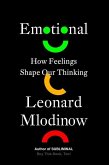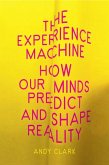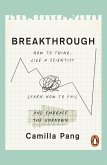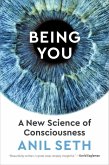Why do some people become radicalized?
Who is most susceptible to ideological thinking?
Can we unchain our minds from toxic dogmas?
Regardless of your political stance, this book will challenge you to reassess your convictions - and what they are doing to your brain.
'Filled with insightful findings, this book shows that ideological extremism and polarization are not just problems to fret about but puzzles that can be studied and understood'
STEVEN PINKER
'Massively important...Zmigrod is a joyful and compelling writer' THE SUNDAY TIMES
'Mind-expanding, a joy, her findings really are extraordinary' PROSPECT
Drawing on her groundbreaking research, Dr Leor Zmigrod uncovers the hidden mechanisms driving our beliefs and behaviours. She uses the powerful tools of neuroscience to show that our political beliefs are not transient thoughts in our minds - ideologies actually change our cells. And while some individuals are more susceptible to dogmatic thinking than others, all of us can strive to be more flexible. The Ideological Brain is essential reading in today's polarized and polarizing world.
Who is most susceptible to ideological thinking?
Can we unchain our minds from toxic dogmas?
Regardless of your political stance, this book will challenge you to reassess your convictions - and what they are doing to your brain.
'Filled with insightful findings, this book shows that ideological extremism and polarization are not just problems to fret about but puzzles that can be studied and understood'
STEVEN PINKER
'Massively important...Zmigrod is a joyful and compelling writer' THE SUNDAY TIMES
'Mind-expanding, a joy, her findings really are extraordinary' PROSPECT
Drawing on her groundbreaking research, Dr Leor Zmigrod uncovers the hidden mechanisms driving our beliefs and behaviours. She uses the powerful tools of neuroscience to show that our political beliefs are not transient thoughts in our minds - ideologies actually change our cells. And while some individuals are more susceptible to dogmatic thinking than others, all of us can strive to be more flexible. The Ideological Brain is essential reading in today's polarized and polarizing world.








